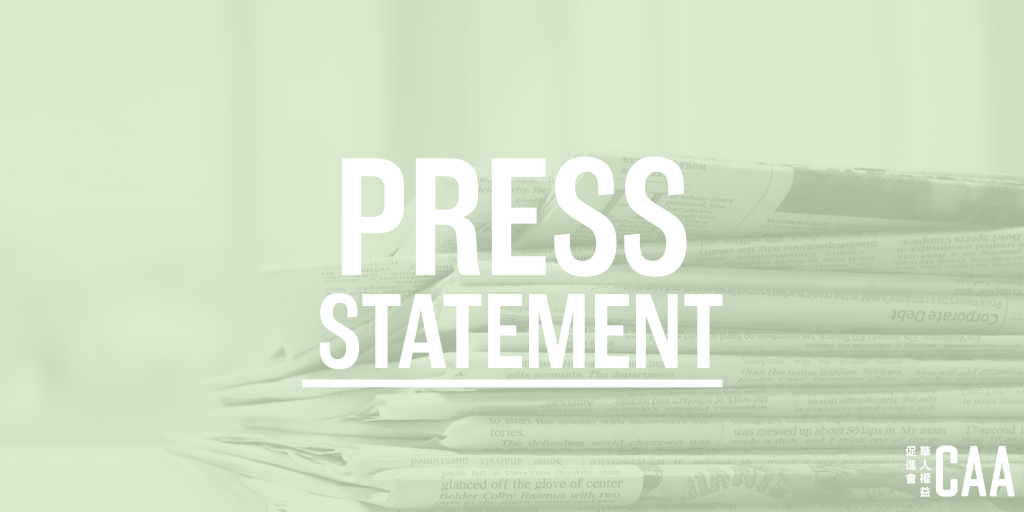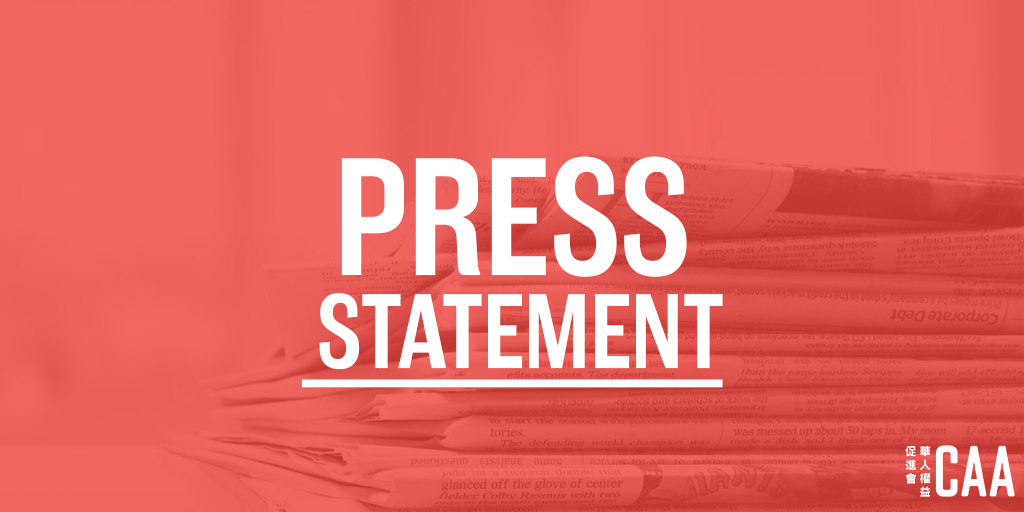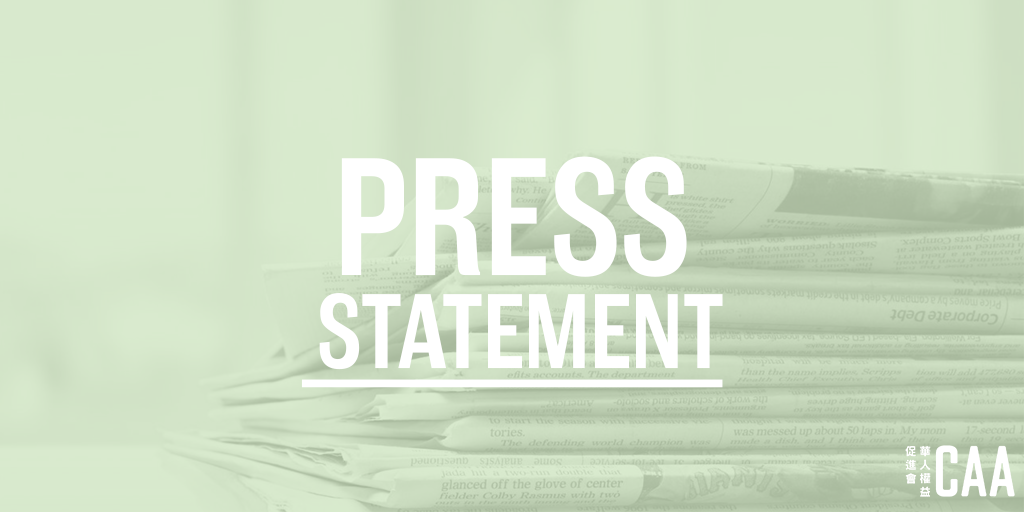
CAA’S Statement in Response to the Chaotic Disclosure of SFUSD’s School Closure List
San Francisco, CA: The San Francisco Unified School District (SFUSD) has officially made public the list of possible school closures and the process has been nothing short of chaotic. The lack of a clear and orderly process to the announcement has left little confidence in the school district’s ability to address all immediate concerns facing impacted students and families. The issuance of a list that is not final contributes to the existing confusion as parents and students try to determine how best to proceed. And it is unclear what criteria the district will use to determine whether a school will be removed or remain on the final list.
SFUSD is facing significant financial challenges including a $100 million budget shortfall, persistent staffing shortages, and declining student enrollment. Since 2012-13, SFUSD enrollment decreased by over 4,000, and by 2032, SFUSD will lose 4,600 more students. If it is unable to resolve the budget shortfall, the school district is facing a state takeover which will have devastating consequences for the entire district.
The projection of 11 school closures is estimated to save the district about $22 million dollars. To date, SFUSD has failed to provide a clear estimation of the savings and costs for the district and when it anticipates closing the budget shortfall. Historically, school closures have not contributed to savings, at least in the short term, for a variety of reasons including the cost of repurposing a school and the cost of providing resources for displaced students. SFUSD must demonstrate that school closures are part of a broader, strategic vision for the district’s future, rather than a short-term fix.
As impacted families navigate these difficult decisions, it is crucial that we prioritize the needs of our most vulnerable students. Services for English language learners and special education programs must be protected. This includes providing parents of English learners and students with special needs the option of choosing their welcoming school as well as ensuring that the welcoming school is well-resourced and supported through this process. Staff’s needs must also be taken into consideration, especially for special education services as well as language immersion programs if we want to ensure students’ long-term success. These programs are vital to ensuring equity in education and must remain a cornerstone of SFUSD’s mission.
SFUSD has also been unclear as to what constitutes a “closure” versus a “merger.” Families and school staff need clarity from the district in order to support students’ social and emotional needs as they transition to new schools or welcome new classmates and teachers.
“The school district’s focus must always prioritize student learning, and any decision regarding school closures should be made with the goal of enhancing educational outcomes. The community deserves clear, open communication moving forward. CAA calls on SFUSD to be transparent in its decision-making process and to involve all stakeholders in discussions before any final decisions are made,” states Annie Lee, Managing Director of Policy, Chinese for Affirmative Action.
###
Chinese for Affirmative Action (CAA) was founded in 1969 to protect the civil and political rights of Chinese Americans and to advance multiracial democracy in the United States. Today, CAA is a progressive voice in and on behalf of the broader Asian American and Pacific Islander community. We advocate for systemic change that protects immigrant rights, promotes language diversity, and remedies racial and social injustice. You can learn more about us at caasf.org.
即时发布:2024年10月10日
联络人:淩倩恩,华促会资讯总监,syling@caasf.org
华人权益促进会就三藩市联合校区关闭学校的混乱发表声明
加利福尼亚,三藩市:三藩市联合校区(SFUSD)以非常混乱的方式公布了可能关闭的学校。公布的过程既不明确且无秩序,使市民对校区失去信心,此举加剧了关于校区能力的质疑并加重了受影响学生和家长的顾虑。因为校区没有公布所有面临关闭的学校,学生和家长们对下一步更加迷茫和困惑。目前还不清楚校区将根据什么标准,来决定如何在公布的列表中选择最终会被关闭的学校。
三藩市联合校区面对着巨大的财务危机,其中包括:超过一亿美金的预算缺口、持续教资人手短缺、学生总数下降。自2012-2013学年以来,校区学生总数减少了4000名,而且会于2032年再失去4600名学生。如果无法解决预算不足的问题,校区将面临州政府将接管,这将会给我们的校区带来灾难性的后果。
三藩市联合校区目前的计划是关闭十一所学校,可节省大概二千二百万美金。校区至今仍然未公布关闭学校将节省的费用和成本,以及要何时才可以弥补预算的缺口。从历史来看,出于各种原因,学校关闭并没有带来支出的消减,至少没有在短期之内有作用。背后的原因包括整修教学楼和帮助安置被迫转学的学生的费用等等。三藩市联合校区必须证明,他们的学校关闭计划是校区长远规划的步骤之一,而不只是权宜之计。
受影响的家庭正在做出很多艰难的决定,我们必须优先考虑最弱势学生的需求。英文学习者和特殊教育项目务必受到保护。校区应保证英文学习者和有特殊需求的学生及他们的家长有权选择适合他们的学校,并确保这些学校有足够的资源和支持。为保学生的长远成功,校区也要考虑教职员工的需求,以确保特殊教育项目和语言沉浸式教学。这些项目对维持教育公平至关重要,三藩市联合校区务必保留它们,并继续把它们作为教育宗旨的基础。
三藩市联合校区一直没有明确“关闭(closure)”和“合并(merger)”的定义。学生的家庭和学校员工需要校区的明确说明,以便在学生转学或欢迎新老师和同学期间为他们提供充足的社交和情感支持。
华人权益促进会政策管理主任李申申(Annie Lee)强调:“校区一定要优先考虑学生的教育,关闭学校的目标应该是提高教育结果。社区应该得到清晰、公开的沟通。华人权益促进会要求三藩市联合校区在做决定过程中保持透明,并在决定之前邀请所有将受影响的群体参与讨论。”
###
华人权益促进会(CAA)成立于1969年,旨在保护美国华裔的公民和政治权利,推动美国的多种族民主。今天,华促会在更广泛的亚裔美国人和太平洋岛民社区中代表进步的声音。我们倡导系统性的变革,保护移民权利,促进语言多样性,并纠正种族和社会不公。你可以在caasf.org了解更多关于我们的资讯。





